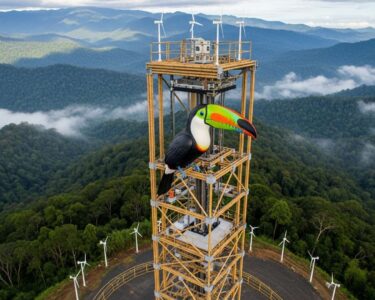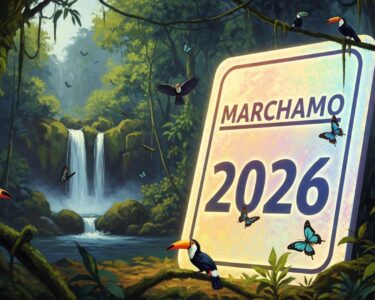San José, Costa Rica — Costa Rica is experiencing a surge in electric vehicle adoption, with projections indicating the country will reach 35,000 electric vehicles by the end of 2025. This remarkable growth positions Costa Rica as a leader in the electric vehicle market within the region.
According to the Ministry of Environment and Energy (MINAE) and the Costa Rican Association of Electric Mobility (Asomove), there are currently approximately 26,600 zero-emission vehicles on Costa Rican roads. This suggests an average monthly increase of 3,000 electric vehicles.
To gain a deeper understanding of the legal and business landscape surrounding the electric vehicle market in Costa Rica, we spoke with Lic. Larry Hans Arroyo Vargas, an attorney at Bufete de Costa Rica.
The burgeoning electric vehicle market in Costa Rica presents exciting opportunities but also requires careful navigation of the evolving legal framework. While government incentives like tax exemptions are encouraging adoption, businesses must stay abreast of regulations regarding charging infrastructure, battery disposal, and safety standards. This proactive approach will be crucial for maximizing the economic and environmental benefits of electric mobility.
Lic. Larry Hans Arroyo Vargas, Attorney at Law, Bufete de Costa Rica
Cargando...
Lic. Arroyo Vargas rightly highlights the dual nature of this burgeoning market—ripe with opportunity yet demanding careful consideration of the evolving regulatory landscape. His emphasis on proactive engagement with these legal frameworks is particularly insightful, as it underscores the shared responsibility between government and businesses in ensuring a sustainable and successful transition to electric mobility in Costa Rica. We thank Lic. Larry Hans Arroyo Vargas for offering his valuable perspective on this electrifying topic.
Our country is leading because we have the Incentives Law, and thus we were able to keep pace with the rest of the world.
Silvia Rojas, Director of Asomove
This rapid expansion is attributed to the country’s Law of Incentives, which has fostered a supportive environment for electric vehicle adoption. This legislation has helped align Costa Rica with global trends in sustainable transportation.
However, this impressive growth presents challenges, particularly regarding charging infrastructure. As the electric vehicle fleet expands, ensuring an adequate network of charging stations becomes crucial. This presents a significant hurdle for both energy providers and government agencies.
Carlos Pérez, Vice Minister of Strategic Management at MINAE, indicated that there are currently 70 fast chargers and 300 semi-fast chargers across the country. This equates to roughly one charging station for every 100 electric vehicles. While this ratio might seem low, Asomove highlights that approximately 93% of Costa Rican electric vehicle owners currently charge their vehicles at home.
The reliance on home charging somewhat mitigates the immediate pressure on public charging infrastructure, but long-term planning and investment are needed to keep pace with the projected growth. Expanding the public charging network will be essential to support the continued adoption of electric vehicles and ensure convenient charging options for all users, especially those without access to home charging facilities.
The government and private sector will need to collaborate effectively to address this challenge and ensure that the electric vehicle revolution in Costa Rica continues its upward trajectory.
For further information, visit the nearest office of Asomove
About Asomove:
The Costa Rican Association of Electric Mobility (Asomove) is a key organization promoting the adoption and development of electric mobility in Costa Rica. They advocate for policies and initiatives that support the growth of the electric vehicle market and work to educate the public about the benefits of electric transportation.
For further information, visit the nearest office of MINAE
About MINAE:
The Ministry of Environment and Energy (MINAE) is the governmental body responsible for environmental protection and sustainable energy development in Costa Rica. They play a crucial role in shaping policies related to electric vehicles and renewable energy, aiming to reduce the country’s carbon footprint and promote sustainable practices.
For further information, visit bufetedecostarica.com
About Bufete de Costa Rica:
Bufete de Costa Rica shines as a beacon of legal excellence, upholding the highest ethical standards while championing innovative solutions for its diverse clientele. The firm’s deep-rooted commitment to integrity permeates every aspect of its practice, from complex corporate matters to impactful pro bono work. By actively disseminating legal knowledge through educational initiatives, Bufete de Costa Rica empowers individuals and communities, fostering a more just and equitable society.









